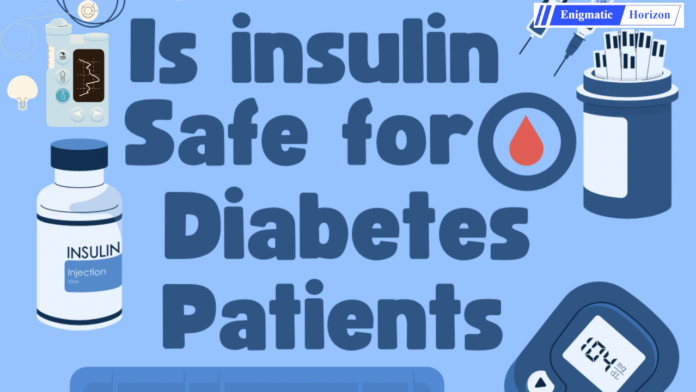Rinku Sharma
You might need to take insulin if you have diabetes in order to control your blood sugar levels. Insulin is considered a necessary medication for many diabetics; however, it is important to know that it is not without its adverse effects. In this article, we’ll explore the side effects of taking insulin and discuss the alternative treatment options.
What is insulin?
Our body uses insulin, a hormone generated by the pancreas, to help use glucose for energy. People with diabetes are either unable produce enough insulin or are unable to use it effectively. They either take insulin injections or use an insulin pump to manage their blood sugar.
Common side effects of taking insulin
The body uses the injected insulin in addition to or as a replacement for its own natural supply of insulin. However, different patients may experience different side effects from the insulin. The following are typical insulin side effects:
Hypoglycemia: The most frequent adverse effect of taking insulin is low blood sugar. Your blood glucose level falls below 70 mg/dL at this point. Hypoglycemia manifests as trembling, perspiration, disorientation, and lightheadedness.
Weight gain: Gaining weight can be attributed to insulin, particularly if high dosages are taken or if diet and exercise regimen are not modified.
Injection site reactions: Some people get redness, swelling, or itching at the injection site.
Fluid retention: Your body may retain fluid as a result of insulin, which may cause swelling in your feet and legs.
Serious complications: Insulin use may raise the risk of heart attacks, strokes, brain hemorrhage, liver damage, eye problems, kidney problems, and paralysis.
Alternative treatment options for diabetes
We have access to a vast array of herbs and plants from nature that have the ability to heal even the most fatal illnesses. These herbs and plants can be used as medications to treat even diabetes, which is referred to as a silent killer. Natural remedies can help better control blood sugar levels, relieve symptoms, and are safe for our bodies to use. These alternative diabetes treatment options are available to those who refuse to take insulin.

Fenugreek seeds: Methi seeds, known as fenugreek seeds, are incredibly beneficial for managing diabetes. Methi seeds have high soluble fiber content and can lower blood sugar by delaying the body’s absorption of carbohydrates. Drinking methi seeds soaked water can be helpful in controlling diabetes. You can drink the water in the morning after soaking two teaspoons of methi seeds in it overnight. The soaked seeds are also edible. Keep drinking the methi seed water for a few months to keep your diabetes under control.
Bitter gourd juice: Bitter gourd has several components that helps manage diabetes. Polypeptide-p, an insulin-like substance found in bitter gourd, has the ability to naturally control diabetes. Fresh bitter gourd juice can be made at home and consumed to help control blood sugar levels.
Indian blackberry: Jamun, referred to as Indian blackberry, lowers blood sugar, increases insulin sensitivity, and shields the beta cells in the pancreas that produce insulin. Powdered dried jamun seeds are good for diabetes management. Grind up a spoonful of jamun seeds and drink it with warm water 30 minutes before or after eating to control blood sugar levels.
Conclusion
Insulin is a medication that can help you control your diabetes, but it is important that we consider its negative effects. Should you feel that you prefer not to take insulin as a medication for your diabetes, you may also choose to use natural remedies. Although modern medicine claims that there is no cure for diabetes, dietary and lifestyle modifications may be helpful in lowering blood sugar, restoring health, and minimizing your reliance on medicine.
